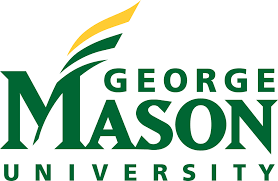George Mason University: George Mason University looks to increase financial aid and improve faculty and staff salaries through proposed 3% tuition increase
George Mason University is recommending a 3% tuition increase for the 2022-23 academic year, which would provide more financial aid for students in need and improve faculty and staff salaries. The proposal does not increase mandatory student fees.
Carol Dillon Kissal, Mason senior vice president for administration and finance, announced the budget proposal at a Board of Visitors (BOV) public comment session Tuesday, April 5, in Merten Hall. The BOV is expected to vote on the proposal in May as part of the FY 2023 budget.
“Our mission is academic excellence and student success, which we balance with affordability to ensure everyone has a path to a college degree,” Kissal said, noting that Mason’s proposed hike is projected to be at the low end for Virginia peer universities. “While modest, tuition increases pave the way for student success through investments in financial aid, competitive compensation, and the operational infrastructure necessary for enhanced research, innovation, and student support services.”
Last year, Mason did not increase undergraduate tuition for the current academic year. The proposed tuition increases would cost in-state undergraduates $285 more per academic year, while out-of-state undergraduates would pay an additional $989. The 3% hike would apply to all in-state and out-of-state undergraduate, graduate, and law students.
Mason’s 2021-22 tuition is the second most affordable among the state’s six doctoral universities, even though Mason receives the least per-student state financial support among those universities.
Mason currently receives $6,662 per student compared with per-student allotments of $7,622 for Virginia Tech, $8,436 for Old Dominion, $9,357 for Virginia Commonwealth, $9,988 for the University of Virginia, and $10,951 for William & Mary.
Kissal said one-third of the proposed tuition increase, an estimated $5 million, would be reallocated to financial aid for the neediest Mason students. About 65% of Mason undergraduates receive some form of aid.
Another portion of the tuition increase would support faculty and staff salaries, which continue to lag behind peer universities in Virginia. The state covers about half of the approved salary adjustments, while Mason funds the other half through tuition revenues.
University officials say the salary disparity, in a high cost-of-living area and competitive job market, affects recruitment and retention of faculty and staff for the largest and most diverse public university in Virginia.
“Our biggest asset is our people,” Kissal said. “Faculty and staff are the ones who shape our students’ education, experience and opportunities, so competitive compensation is critical to ensuring Mason offers them the best and brightest, particularly for those who may not have access to a college degree without our support.”
Using 2019-20 salary data from the State Council of Higher Education for Virginia (SCHEV), Mason faculty ranked 19th out of 26 institutions for overall average faculty salary. Earlier this year, Mason completed a market and equity analysis of faculty salaries and began a multi-year investment to improve competitiveness. A similar analysis of staff compensation is also under way with results expected in 2023.
Rector Jimmy Hazel has extended the deadline for written comments to April 22 to give students additional opportunity to share their thoughts on the proposed tuition increase before the board votes on the budget in May. Written comments may be submitted online. The next BOV meeting will be May 5 in Merten Hall, Room 1201.

